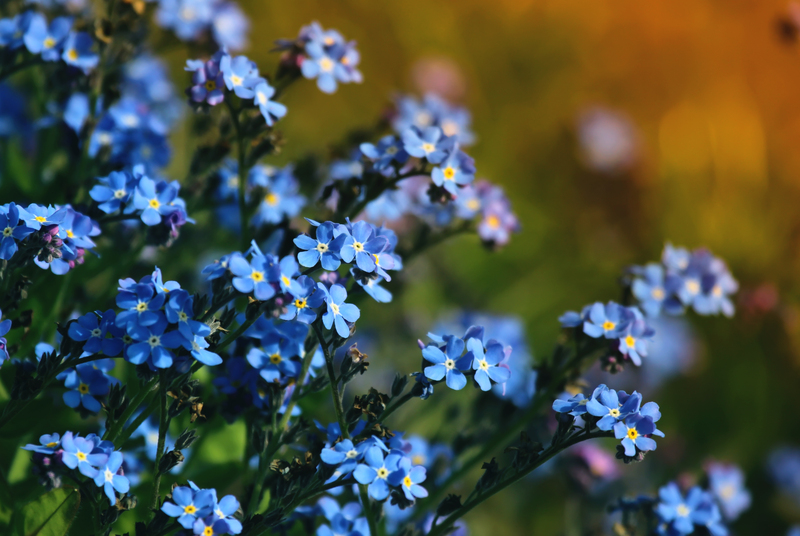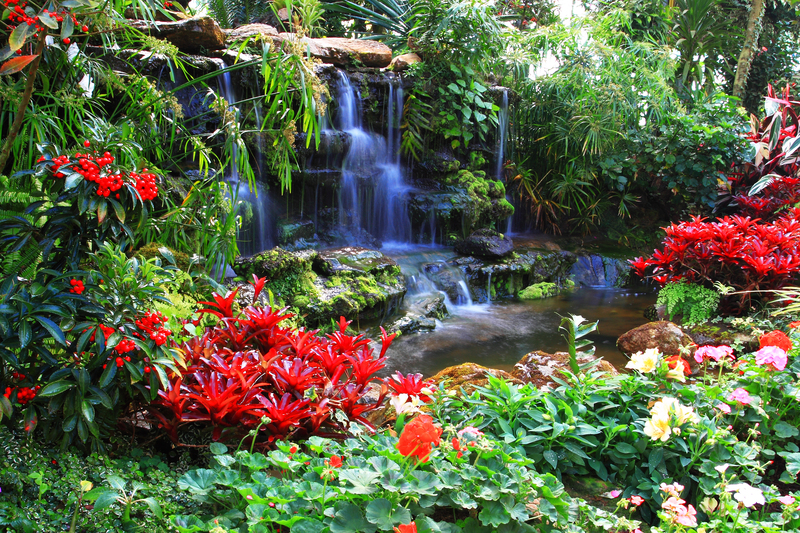Discover the Foundation of Gardening with These 9 Essential Beginner Tips
Posted on 22/08/2025
Discover the Foundation of Gardening with These 9 Essential Beginner Tips
Ready to transform your outdoor space and grow your own green paradise? Gardening for beginners can feel overwhelming, but mastering a few foundational skills sets you on the path to thriving plants and beautiful landscapes. This in-depth guide unveils nine essential tips that will give you the confidence and knowledge to begin your gardening journey--whether you have a sprawling yard or a small apartment balcony. Start nurturing your green thumb with these easy gardening tips tailored just for novices!
1. Understand Your Growing Zone
Before planting anything, it's crucial to determine your gardening zone. Gardening zones, also known as hardiness zones, indicate the climatic conditions of specific regions. This knowledge helps you select plants that will thrive in your area.
How to Find Your Gardening Zone
- Consult the USDA Plant Hardiness Zone Map or your country's equivalent.
- Identify your location and note the corresponding planting zone.
- Read seed packets and plant labels for zone recommendations.
Tip: Choosing varieties suited to your climate reduces the risk of plant failure and ensures better yields for vegetables and flowers.

2. Start with the Right Soil
No matter your preferred gardening style, healthy soil is the cornerstone of gardening success. Soil quality directly impacts plant growth, disease resistance, and productivity.
Improving Your Soil
- Test your soil: Purchase a simple home kit or send a sample to a lab to determine pH and nutrient content.
- Add organic matter: Regularly mix compost, aged manure, or leaf mold to increase fertility and structure.
- Avoid compacting soil: Walk around garden beds, not on them, and use raised beds if possible.
Bonus tip: Mulching with straw, bark, or leaves conserves moisture and enriches soil as it breaks down.
3. Pick the Perfect Spot for Your Garden
Light is a plant's life force! Most plants need at least six hours of direct sunlight daily, but some thrive in partial shade. Observing your outdoor space and understanding sunlight patterns is vital for successful garden design.
- Full sun: Best for vegetables, fruits, and many annual flowers.
- Partial shade: Perfect for leafy greens, herbs, and some perennials.
- Shady spots: Stick to ferns, hostas, or shade-loving groundcovers.
Use this knowledge to arrange your garden beds and containers for maximum growth and appeal.
4. Choose Easy-to-Grow Plants
When learning the basics of gardening for novices, selecting beginner-friendly plants can set you up for immediate win. These crops are resilient, adaptable, and forgiving of common mistakes.
- Vegetables: Lettuce, radishes, cucumbers, beans, and zucchini are great starter choices.
- Herbs: Basil, chives, parsley, and mint flourish with minimal care.
- Flowers: Marigolds, sunflowers, zinnias, and nasturtiums thrive with little intervention.
Pro-tip: Bush varieties of plants are generally easier to manage than sprawling or trailing types.
5. Master Watering Techniques
Proper watering is a top foundation of gardening--too much or too little can harm your plants. Develop a watering routine based on plant type, weather, and season.
Watering Basics for Beginners
- Water deeply and infrequently: Encourage deep root growth by soaking soil a few times a week rather than a light, daily sprinkle.
- Morning is best: This reduces fungal diseases and water loss through evaporation.
- Check soil moisture: Stick your finger an inch below the surface--if it's dry, it's time to water.
- *Avoid wetting the foliage to minimize disease.
Remember: Container and raised bed gardens dry out faster than in-ground beds!
6. Fertilize Wisely
Plants need nourishment beyond what's naturally available in most soils. Smart fertilization is a pillar of good gardening for beginners. The key is to provide the right nutrients at the right time.
- Start with compost: A handful of compost in your planting holes improves most gardens.
- Choose the right fertilizer: Use balanced, slow-release fertilizers for most beginners' gardens.
- Follow package directions: Over-fertilization can burn plants, so less is more.
Watch for symptoms: Yellow leaves, stunted growth, or discolored edges can mean a deficiency. Adjust fertilizing accordingly for healthier plants.
7. Mulch for Healthier Plants and Fewer Weeds
Mulching is one of the best gardening foundation tips because it offers a multi-faceted defense for your garden. Mulch retains moisture, suppresses weeds, and regulates soil temperature.
- Organic Mulch: Straw, shredded leaves, or wood chips break down for added nutrients.
- Inorganic Mulch: Gravel or stones are good for permanent beds, though they don't enrich soil.
- Apply a 2-3 inch layer around plants, keeping mulch away from the stems or trunks.
Extra advantage: Mulching also prevents soil erosion and keeps your garden looking beautifully tidy!
8. Keep an Eye on Pests and Diseases
Pest and disease management is integral to successful DIY gardening for beginners. Early intervention saves plants and minimizes the need for chemicals.
Simple Pest Prevention Tips
- Inspect your plants regularly for holes, discolored spots, or sticky residue.
- Encourage beneficial insects: Ladybugs, lacewings, and bees help control pests and pollinate crops.
- Avoid overcrowding: Good air circulation deters fungus and mildew.
- Remove affected leaves and use natural remedies like neem oil or soap sprays when necessary.
Tip: Learn to identify common garden pests in your region to tackle issues proactively.
9. Practice Patience and Keep Learning
The most important gardening beginner tip is to recognize that growth takes time--both for plants and skills. Don't be discouraged by setbacks. Every mistake is an opportunity to learn and improve your home garden foundation!
Ways to Increase Your Gardening Knowledge
- Join a local gardening club or online forums for advice and inspiration.
- Read gardening books, magazines, and blogs to expose yourself to new techniques and ideas.
- Keep a garden journal to track what works and what doesn't in your specific space.
Remember: Gardening is a rewarding journey, not a sprint! Celebrate every bloom, harvest, and lesson along the way.

Frequently Asked Questions: Gardening Tips for New Gardeners
How do I start a small garden at home?
Begin by picking a sunny spot, testing your soil, and choosing beginner-friendly plants. Use raised beds or containers for easy management, and follow the foundational gardening advice above to set yourself up for success.
What is the easiest plant to grow for beginners?
Herbs like basil and parsley, and vegetables such as radishes or lettuce, are typically easy for new gardeners to grow with minimal effort.
How often should I water my garden?
Most garden beds need watering 1-3 times per week, depending on rainfall and temperature. Check soil moisture and adjust as needed.
How can I prevent common gardening mistakes?
Start small, follow these foundational gardening tips, and continually learn from each season. Avoid overwatering, use mulch, choose suitable plants, and observe your garden regularly for signs of issues.
Conclusion: Laying the Groundwork for a Beautiful, Productive Garden
Learning the foundation of gardening is exciting and rewarding. By applying these 9 essential beginner tips, you'll nurture your plants with confidence and set the stage for years of outdoor enjoyment. Whether your goal is a lush flower border, a tasty vegetable patch, or a relaxing green retreat, every great garden starts with sound advice and a willingness to grow--literally!
Ready to get started? Take the first step today--choose your patch, prep your soil, and discover the fulfilling world of gardening with these beginner-friendly strategies. Your green oasis awaits, and with this guide, you have everything you need to cultivate success from the ground up.
If you found these tips helpful, share them with friends or explore more gardening resources for continued inspiration and guidance!
Latest Posts
Sculpting a Sanctuary for Pets and Plants
The Art of Arranging Garden Seating for Ultimate Coziness
3 Essential Tips for Mastering Weed Control
Landscape Artistry: Hedge Trimming Techniques and Shape Innovations

